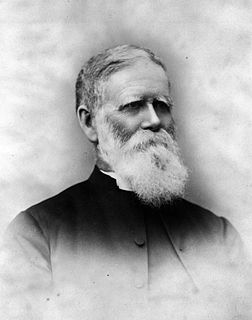A Quote by Charles Caleb Colton
As the grand discordant harmony of the celestial bodies may be explained by the simple principles of gravity and impulse, so also in that more wonderful and complicated microcosm, the heart of man, all the phenomena of morals are perhaps resolvable into one single principle, the pursuit of apparent good; for although customs universally vary, yet man in all climates and countries is essentially the same.
Related Quotes
Physical science enjoys the distinction of being the most fundamental of the experimental sciences, and its laws are obeyed universally, so far as is known, not merely by inanimate things, but also by living organisms, in their minutest parts, as single individuals, and also as whole communities. It results from this that, however complicated a series of phenomena may be and however many other sciences may enter into its complete presentation, the purely physical aspect, or the application of the known laws of matter and energy, can always be legitimately separated from the other aspects.
A man does not have to go and find where his eyes are in order to see. The heart is there, always open to you, if you care to enter it, always supporting your movements, although you may be unaware of it. It is perhaps more correct to say that the Self is the Heart. Really the Self is the centre and is everywhere aware of itself as the Heart or Self-awareness.
The longing to behold this pre-established harmony [of phenomena and theoretical principles] is the source of the inexhaustible patience and perseverance with which Planck has devoted himself ... The state of mind which enables a man to do work of this kind is akin to that of the religious worshiper or the lover; the daily effort comes from no deliberate intention or program, but straight from the heart.
Every thing useful and beneficial to man, seems to be connected with obedience to the laws of his nature, the inclinations, the duties, and the happiness of individuals, resolve themselves into customs and habits, favorable, in the highest degree, to society. In no case is this more apparent, than in the customs of nations respecting marriage.
It is a truth universally acknowledged, that a single man in possession of a good fortune, must be in want of a wife. However little known the feelings or views of such a man may be on his first entering a neighbourhood, this truth is so well fixed in the minds of the surrounding families, that he is considered as the rightful property of someone or other of their daughters.
If everything in chemistry is explained in a satisfactory manner without the help of phlogiston, it is by that reason alone infinitely probable that the principle does not exist; that it is a hypothetical body, a gratuitous supposition; indeed, it is in the principles of good logic, not to multiply bodies without necessity.
The determination of the average man is not merely a matter of speculative curiosity; it may be of the most important service to the science of man and the social system. It ought necessarily to precede every other inquiry into social physics, since it is, as it were, the basis. The average man, indeed, is in a nation what the centre of gravity is in a body; it is by having that central point in view that we arrive at the apprehension of all the phenomena of equilibrium and motion.
Give us, O give us the man who sings at his work! Be his occupation what it may, he is equal to any of those who follow the same pursuit in silent sullenness. He will do more in the same time . . . he will do it better . . . he will persevere longer. One is scarcely sensible to fatigue while he marches to music. The very stars are said to make harmony as they revolve in their spheres.





































